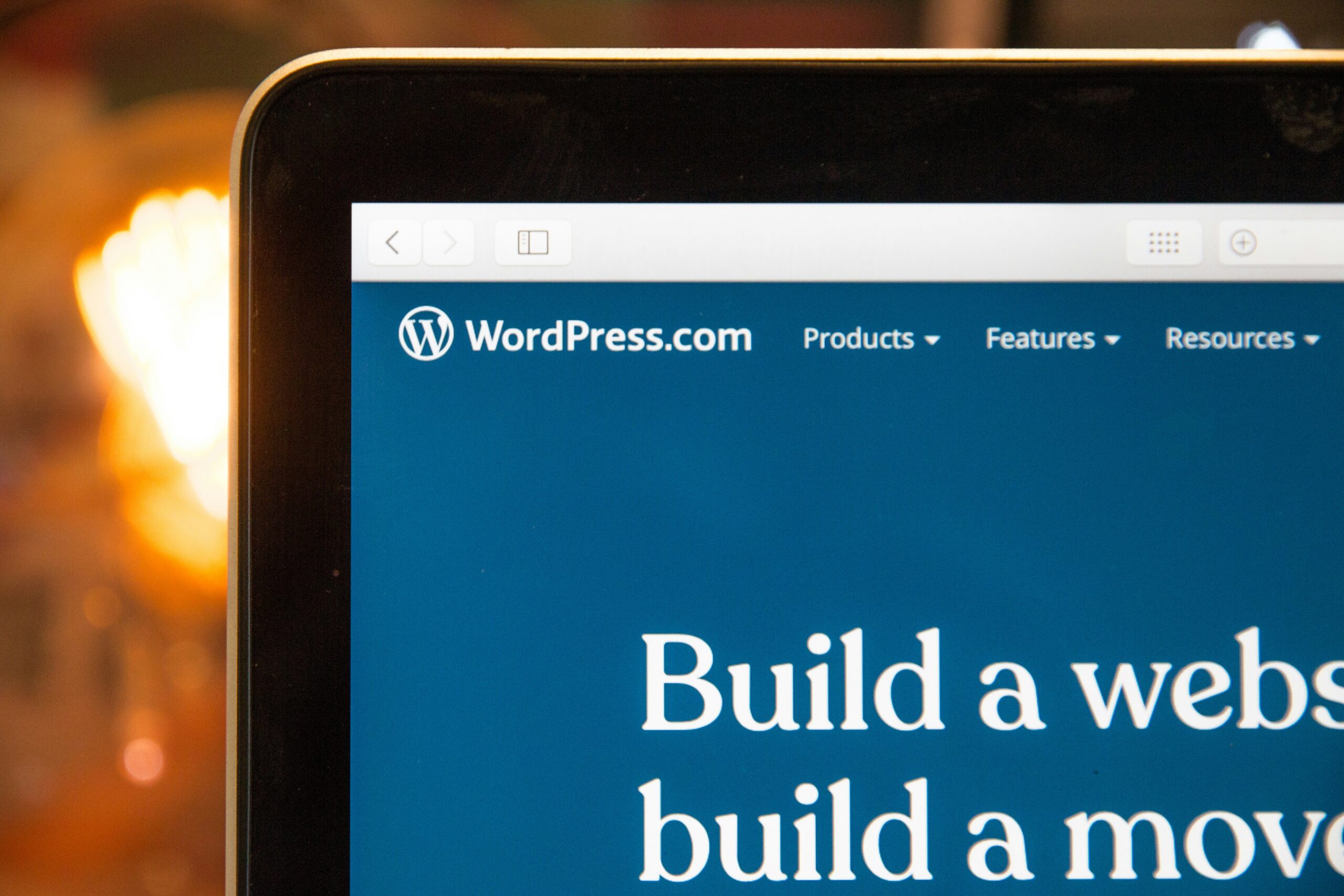Choosing the right CMS can be tough for anyone looking to develop a website. A 2023 survey showed that 64% of businesses felt overwhelmed by the options available. This blog post will cover an overview of top CMS platforms, key features to consider, and a comparative analysis of popular choices like Sitecore. Readers will gain insights to help them select a CMS that fits their brand needs and learning curve without excessive fees. This guide aims to simplify the decision-making process for effective web development by addressing these common challenges.
Key Takeaways
- choosing the right CMS is essential for effective web development and content management
- user experience and customization options greatly impact a website’s performance and audience engagement
- WordPress is highly regarded for its user-friendliness and extensive plugin options for small businesses
- security features and community support are vital for protecting digital assets and enhancing usability
- evaluating specific website goals helps in selecting the most suitable content management system
Overview of Top CMS Platforms for Effective Website Development

This section presents an overview of various content management systems (CMS) that can meet different website needs. WordPress serves as a versatile solution for many, while Joomla helps create complex websites. Drupal offers robust, scalable options. Shopify and BigCommerce focus on e-commerce solutions, whereas Wix and Squarespace provide quick and visually appealing website creation. Each CMS has unique features, including PHP support and integration with tools like WooCommerce and Storyblok, catering to diverse business requirements.
1. WordPress as a Versatile Solution
WordPress stands out as a versatile solution for many website needs due to its user-friendly interface and flexibility. The platform offers a drag-and-drop functionality that enhances accessibility, making it easy for anyone to build and manage a site. With its solid architecture and features like version control, WordPress helps users maintain organization and streamline content updates, providing an effective way to keep a website current and engaging for visitors.
2. Joomla for Building Complex Websites
Joomla stands out as an excellent content management system for building complex websites, offering strong capabilities for email marketing, collaboration, and integration with various web hosting services. Its flexibility allows users to customize the design and functionality of their sites using CSS, ensuring a unique online presence. Additionally, Joomla’s robust community support provides resources and tools, helping businesses effectively manage their digital content while enhancing overall user engagement.
- Joomla offers strong capabilities for email marketing.
- It facilitates collaboration among team members.
- Integration with various web hosting services is seamless.
- Customization through CSS allows for unique designs.
- It has a supportive community for resources and tools.
3. Drupal for Robust and Scalable Solutions
Drupal stands out as a robust and scalable content management system that caters well to complex websites. With its headless content management system capability, it allows businesses to create flexible and customized solutions that easily integrate with various commerce platforms, enhancing online shopping experiences. Additionally, Drupal’s XML support facilitates seamless content delivery across different platforms, helping users maintain a consistent online presence while managing their digital content effectively.
4. Shopify for E-Commerce Focused Websites
Shopify is a top choice for businesses focusing on e-commerce due to its user-friendly interface and robust features. This platform not only supports effective content marketing and digital marketing strategies but also allows for the creation of engaging landing pages that enhance customer experience. With its omnichannel capabilities, Shopify ensures that businesses can reach customers across multiple platforms seamlessly, driving sales and improving overall engagement.
5. Wix for Quick and Easy Website Creation
Wix is an excellent choice for quick and easy website creation, particularly for users with limited programming language knowledge. Its drag-and-drop interface allows anyone to build visually appealing sites without requiring in-depth technical skills. Additionally, Wix offers marketing automation features that simplify outreach efforts and enhance user personalization, making it ideal for businesses looking to connect with their audience effectively.
- Wix is user-friendly, catering to those without extensive technical skills.
- It provides marketing automation tools to streamline outreach.
- Personalization options allow for tailored user experiences.
- The platform supports various learning management system integrations.
6. Squarespace for Design-Centric Websites
Squarespace is an outstanding choice for those needing a design-centric website. The platform offers a range of visually appealing templates that are easy to customize, making it simple for businesses to create unique online identities. With robust features that support managed WordPress hosting integration and strong search engine optimization capabilities, Squarespace allows users to enhance their domain name visibility while ensuring scalability for future growth. Its contentful framework helps businesses effectively organize and showcase their work, allowing them to connect more successfully with their target audience.
Key Features to Consider in a CMS for Web Development

When selecting the right CMS for effective software development, several key features are essential. User interface and ease of use are crucial for effective management. Customization and flexibility options allow users to tailor their sites to hit specific needs. SEO capabilities and performance enhance online visibility, while robust security features ensure safety. Community support and resources can significantly aid users in maximizing their experience with top CMS platforms.
User Interface and Ease of Use
The user interface and ease of use play a significant role in the overall user experience with any content management system (CMS). A straightforward interface allows users to navigate effortlessly while managing their website, making content creation and management less time-consuming. Additionally, features like automation for social media posting can enhance engagement without requiring extensive technical knowledge, thereby streamlining workflows and improving efficiency for businesses.
Customization and Flexibility Options
Customization and flexibility options in a content management system (CMS) are crucial for tailoring a website to meet specific business needs. A system that allows customization can enhance a company’s web presence by providing the ability to modify templates, features, and functionalities. For example, an online marketplace may require unique infrastructures for user management and transaction processes, ensuring a seamless experience for customers across various devices, including mobile apps.
SEO Capabilities and Performance
When considering SEO capabilities and performance in a CMS, it is essential to evaluate how each system manages digital assets and enhances search engine visibility. Platforms like TYPO3 and Webflow provide features that optimize web content for search engines, making it easier for businesses to rank higher. Additionally, the ability to manage server settings and the availability of a clear licensing structure can influence a company’s decision as it seeks a platform that balances performance with efficient digital asset management.
- Evaluate how each CMS manages digital assets.
- Consider SEO optimization features for search engine visibility.
- Look at server settings and performance impact.
- Assess licensing structure for cost-effectiveness.
- Choose a CMS that meets your business needs for web presence.
Security Features and Updates
When selecting a CMS, security features and updates play a critical role in protecting digital assets from threats. A secure system enhances usability by ensuring that user behavior is safeguarded against cyber attacks. Regular updates from a reliable website builder keep the platform secure and up-to-date with the latest defense mechanisms, particularly as the internet of things expands and invites new vulnerabilities.
- Prioritize security features that protect user data.
- Choose a CMS with a proven track record of regular updates.
- Look for built-in security protocols to enhance usability.
- Evaluate how the CMS addresses potential threats in the Internet of Things.
- Assess the community support for best practices in security management.
Community Support and Resources
Community support and resources are critical elements when assessing a content management system (CMS) for web development. A strong user community can provide valuable insights, troubleshooting assistance, and a wealth of plugins or extensions that enhance the core functionality of the CMS. For example, platforms like WordPress offer extensive forums and documentation that help businesses manage their web content effectively, while also providing resources for mobile app development and integrating with various hosting solutions at different price points.
Comparative Analysis of Popular CMS Platforms

This analysis compares popular CMS platforms to help businesses choose the best fit for their needs. It will cover WordPress versus Joomla, examining user experience and performance ratings. Shopify and WooCommerce are evaluated for e-commerce capabilities, while Drupal and WordPress are compared for large enterprises. Finally, it discusses pricing models, cost efficiency, and essential features like web application firewalls and encryption for enhanced web design.
WordPress vs. Joomla
When comparing WordPress and Joomla, businesses often look at user interface and ease of use as primary factors. WordPress stands out for its intuitive user interface, making it a popular choice for those new to web development. Joomla, while excellent for more complex sites, may require a steeper learning curve but offers robust features for managing metadata and large databases, which can be essential for enterprise CMS needs.
Shopify vs. WooCommerce
Shopify and WooCommerce are two popular platforms for businesses looking to establish an online store. Shopify is a hosted solution that provides users with an easy-to-use interface and built-in analytics, making it perfect for those who want a streamlined setup without technical aspects. WooCommerce, on the other hand, is a plugin for WordPress that offers greater data portability and extensive editing options, allowing for a more customizable experience but requiring a better understanding of website management. Both options have unique features, catering to different user needs:
- Shopify offers a user-friendly WYSIWYG editing experience.
- WooCommerce provides flexibility with data portability and customization.
- Shopify includes built-in analytics for easy tracking.
- WooCommerce integrates seamlessly with Adobe Experience Manager for advanced functionality.
Drupal vs. WordPress for Large Enterprises
When it comes to large enterprises, both Drupal and WordPress offer distinct advantages based on workflow needs and document management system capabilities. Drupal excels in handling complex content structures, making it a preferred choice for organizations that require robust efficiency in managing extensive documentation and multiple user roles. In contrast, WordPress provides a user-friendly interface that simplifies the process of creating newsletters and optimizing for search engines, catering well to businesses seeking straightforward solutions for their digital content.
User Experience and Performance Ratings
User experience and performance ratings are crucial when selecting a content management system (CMS) to meet various website needs. Clients must consider how well each CMS supports asset management and integrates with payment gateways for e-commerce functionality. Systems designed for enterprise content management often prioritize streamlined workflows and ease of use, ensuring that businesses can efficiently manage digital assets while providing a user-friendly experience for site visitors.
Pricing Models and Cost Efficiency
When comparing pricing models and cost efficiency among popular CMS platforms, web developers should consider both upfront and ongoing expenses. For instance, while Drupal is a robust option with extensive features, its cost can increase due to the need for advanced hosting and maintenance. In contrast, headless CMS platforms may require a higher initial investment but can offer significant savings in development time and flexibility for web pages over time, making them a viable choice for those looking to build custom solutions, such as integrating with Laravel for more complex applications.
Making an Informed Choice for Your Website Development Needs

Assessing website goals and requirements sets the foundation for choosing the right CMS. Understanding the audience and fostering user engagement is key to creating a successful online presence. Evaluating future scalability and growth ensures that the chosen platform can adapt to business needs. Seeking expert advice and recommendations can provide valuable insights in making the best decision.
Assessing Your Website Goals and Requirements
Assessing website goals and requirements is a foundational step in selecting the best content management system (CMS) for any business. This process involves identifying specific objectives, such as increasing online visibility, improving user engagement, or enhancing e-commerce functionality. By clearly defining these goals, businesses can evaluate which CMS features align best with their needs, ensuring a tailored approach to web development.
- Identify specific objectives for the website.
- Evaluate how each CMS supports these goals.
- Ensure alignment between business needs and CMS features.
Understanding Your Audience and User Engagement
Understanding the audience is essential for enhancing user engagement on a website. By analyzing visitor behavior and preferences, businesses can tailor the content and features of their CMS to meet specific needs. For example, integrating user feedback tools can provide insights on what visitors find valuable, enabling ongoing adjustments that keep the audience engaged and encourage return visits.
Evaluating Future Scalability and Growth
When evaluating future scalability and growth for a website, businesses should consider how well a content management system (CMS) can adapt to their evolving needs. A CMS that offers flexible features and the ability to integrate with new tools can support a growing audience and increased content demands. For example, systems like WordPress and Drupal provide extensive plugin options, enabling users to expand their website functionalities easily as their business expands, ensuring they remain competitive in their respective markets.
Seeking Expert Advice and Recommendations
Seeking expert advice can significantly enhance the process of choosing the right content management system (CMS) for website needs. Professionals in web development can help identify specific requirements and recommend systems that align with business goals. By consulting with experienced developers, businesses can gain insights into the strengths and weaknesses of various CMS platforms, allowing for a more informed decision that ultimately supports online visibility and engagement.
Conclusion
Selecting the right content management system (CMS) is crucial for effectively meeting website needs. Understanding the unique features and strengths of various CMS platforms enables businesses to tailor their web presence for optimal performance and user engagement. Comparing options like WordPress, Joomla, and Shopify allows for informed decisions that align with specific business goals. Investing time in this comparison can significantly enhance online visibility and overall success.
